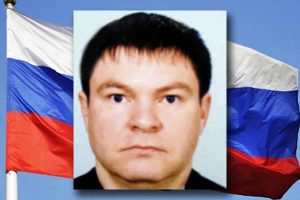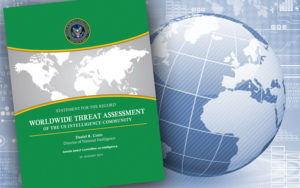Hawaii Man Sentenced to 87 Months Imprisonment for Communicating Classified National Defense Information to Unauthorized Person
Wednesday, September 17, 2014
(DOJ) Assistant Attorney General for National Security John P. Carlin and U.S. Attorney Florence T. Nakakuni for the District of Hawaii announced today that Benjamin Pierce Bishop, 60, a former Honolulu, Hawaii, civilian defense contractor and retired lieutenant colonel in the U.S. Army, was sentenced today by U.S. District Judge Leslie E. Kobayashi to serve 87 months imprisonment and three years’ supervised release for willfully communicating classified national defense information to a person not authorized to receive it and unlawfully retaining classified national defense information at his home.
Bishop pleaded guilty to the two charges on March 13, 2014. In a plea agreement filed with the court and during court proceedings, Bishop admitted that, on March 12, 2012, he e-mailed classified information to a 27-year-old Chinese woman with whom he had a romantic relationship and who was present in the United States as a graduate student on a J1 Visa.
The classified information related to joint training and planning sessions between the United States and the Republic of Korea and was classified at the SECRET level.
Bishop also admitted to unlawfully retaining at his residence multiple classified documents that related to the national defense, including the U.S. Armed Forces Defense Planning Guide for years 2014 through 2018, a document entitled Optimizing U.S. Force Posture in the Asia‑Pacific, the U.S. Department of Defense China Strategy, the 2010 Guidance for Employment of Force (GEF) and a classified photograph of a Chinese naval asset that Bishop retrieved from classified sources based on a request from the Chinese woman.
The documents had been removed from Bishop’s workplace at U.S. Pacific Command.
“Willfully communicating national defense information to a person not entitled to receive it is a serious threat to our national security,” said Assistant Attorney General Carlin. “In committing this crime, Bishop violated his oath to protect the classified information with which he was entrusted. This conduct is unacceptable and we will continue to investigate and seek to hold accountable those who engage in it.”
“We remain steadfast and resolute in our pursuit of those who violate their sworn security agreements and divulge our nation’s secrets to foreign nationals and others,” said U.S. Attorney Nakakuni. “This is the second major espionage case prosecuted in the District of Hawaii, and is particularly troublesome because it involves the communication of classified information to a citizen of the People’s Republic of China.”
This case was investigated by the FBI and the Naval Criminal Investigative Service.
The case was prosecuted by Assistant U.S. Attorney Ken Sorenson of the U.S. Attorney’s Office for the District of Hawaii and Senior Trial Attorney Robert E. Wallace Jr. of the Counterespionage Section of the Justice Department’s National Security Division.
Benjamin Bishop Affidavit (pdf)
Previous:
Defense Contractor Charged in Hawaii with Communicating Classified Information to Person Not Entitled to Receive Such Information (DOJ)
– – – – – –
 U.S. contractor gets 7 years for passing secrets to Chinese girlfriend (Reuters)
U.S. contractor gets 7 years for passing secrets to Chinese girlfriend (Reuters)
A former U.S. military contractor in Hawaii was sentenced on Wednesday to more than seven years in prison for passing national defense secrets to his Chinese girlfriend and illegally keeping numerous classified documents at his home.
Benjamin Pierce Bishop, 60, a retired Army lieutenant colonel assigned to the U.S. Pacific Command on Oahu, admitted in March to the espionage offenses and agreed to cooperate with investigators in a plea deal that staved off additional charges.
As an active-duty reservist stationed at the command headquarters and later as a civilian contractor employed there, Bishop had top-secret security clearance, authorities said. . . .
. . . The email recipient was a 27-year-old Chinese woman who was residing in the United States as a graduate student on a J1 visa while having a romantic relationship with Bishop that federal investigators said he kept hidden from the U.S. government.
In an affidavit filed in the case last year, the FBI said the pair met in Hawaii at an international military conference and that the woman may have been targeting individuals with access to classified information. . . .
. . . . According to the FBI affidavit, Bishop and the woman had been romantically involved since June 2011, and that he passed national defense secrets to her in a series of emails and telephone calls beginning the following May, including plans for deploying U.S. strategic nuclear systems and early warning radar networks. . . . (read more)
Ex-PACOM worker gets 7 years for divulging secrets to Chinese girlfriend (AP)
. . . . Benjamin Bishop demonstrated poor judgment and jeopardized national security because of an intimate relationship, said U.S. District Court Judge Leslie Kobayashi during his sentencing hearing.
That he would risk everything showed the girlfriend “has control over you,” the judge told Bishop.
Bishop’s move to contact the girlfriend from a halfway house he was allowed to stay at while awaiting trial, even though he was forbidden to do so, showed a continued lapse of judgment, she said.
“This makes the court question your ability to follow the law when it comes to this person,” Kobayashi said. . . .
. . . Assistant U.S. Attorney Ken Sorenson told the court Bishop should have known better as an experienced Army officer, noting countries use sexual relationships to gather military secrets.
“All of the warning signs were there and he disregarded them,” Sorenson said in court.
He said the girlfriend made Bishop her pawn, as she had him research classified documents to give her information. . . . (read more)












